Curating Immersive English Experiences
Founder of Blue Noun, Ruth Pringle, discusses her innovative approach to immersive English learning. Ruth shares how combining outdoor exploration, artistic activities, and community engagement transforms English learners into confident English users.
Key talking points
What is Blue Noun?
Ruth introduces Blue Noun, a language hub in Crieff, Scotland, surrounded by the stunning landscapes of Perthshire. Unlike traditional classrooms, Blue Noun offers English learners real-life opportunities to practice language skills while immersing themselves in the local culture.
Learner to User: The Mindset Shift
Ruth highlights the distinction between English learners and English users. She shares how focusing on using "wonky" English in authentic settings can help individuals overcome self-doubt and build confidence in their abilities.
Tailored Experiences
Each experience at Blue Noun is unique. Ruth shares examples of activities, like visiting local artist studios, participating in mosaic workshops, and exploring the scenic outdoors. These activities help learners pick up workplace-relevant vocabulary and build meaningful connections.
Power of Playful Learning
Ruth explains how immersive and tactile experiences—like creating art or having informal conversations—allow learners to integrate English naturally into their identities, making language learning less about perfection and more about connection.
Classroom Takeaways
Redefine "Success" in Language Learning
Encourage students to view themselves as English users at any stage of their learning journey. Shift the focus from error-free speaking to meaningful communication.
Incorporate Real-Life Contexts
Use role-play or real-world scenarios to simulate experiences like visiting a local shop, engaging in workplace discussions, or exploring hobbies in English.
Celebrate Imperfection
Create classroom projects that value creativity and effort over flawless language use, such as crafting simple art projects with accompanying descriptions in English.
Build Confidence Through Community
Invite guest speakers or create partnerships with local professionals to expose students to diverse communication styles and inspire their growth.
About Ruth
Ruth offers English language coaching holidays in Perthshire, Scotland. These are curated immersive experiences that explore Scotland's landscapes and cultures and give ‘1000s of micro moments of you being you, in English’.
Her background is in the arts. She spent 10 years exhibiting as an installation artist around Europe, UK & the USA and began teaching English to support this – first in a corporate language school, then freelance for art and architecture schools.
She began the Blue Noun Hub 5 years ago, to unite L1 & L2 English users through stories, projects and a love of natural Scotland.
Gallery
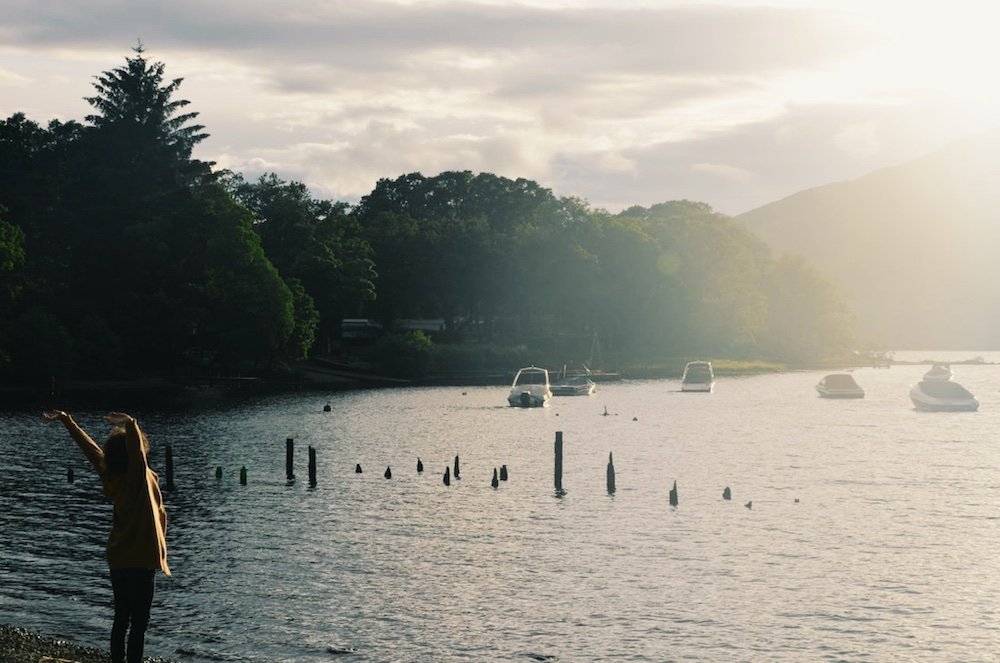
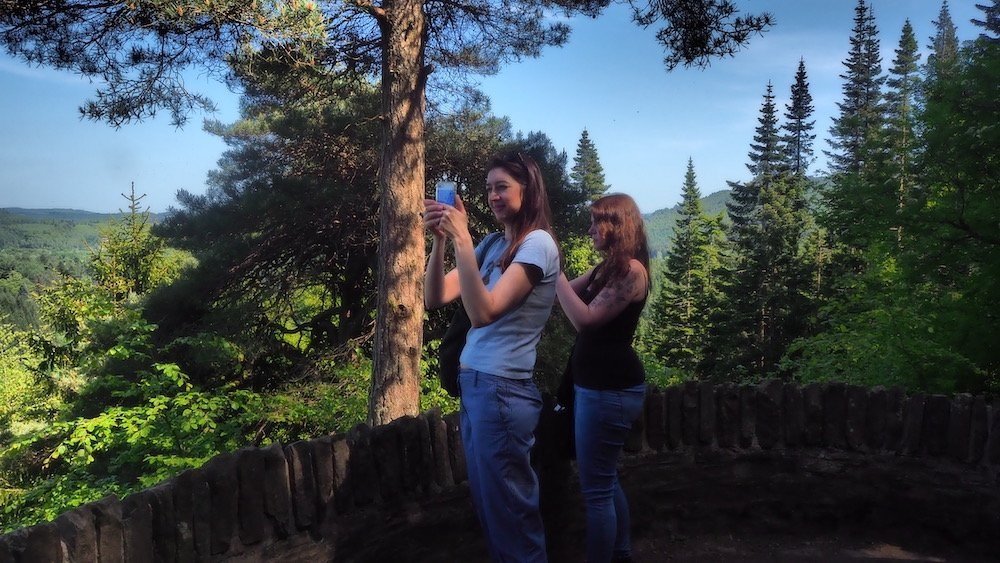

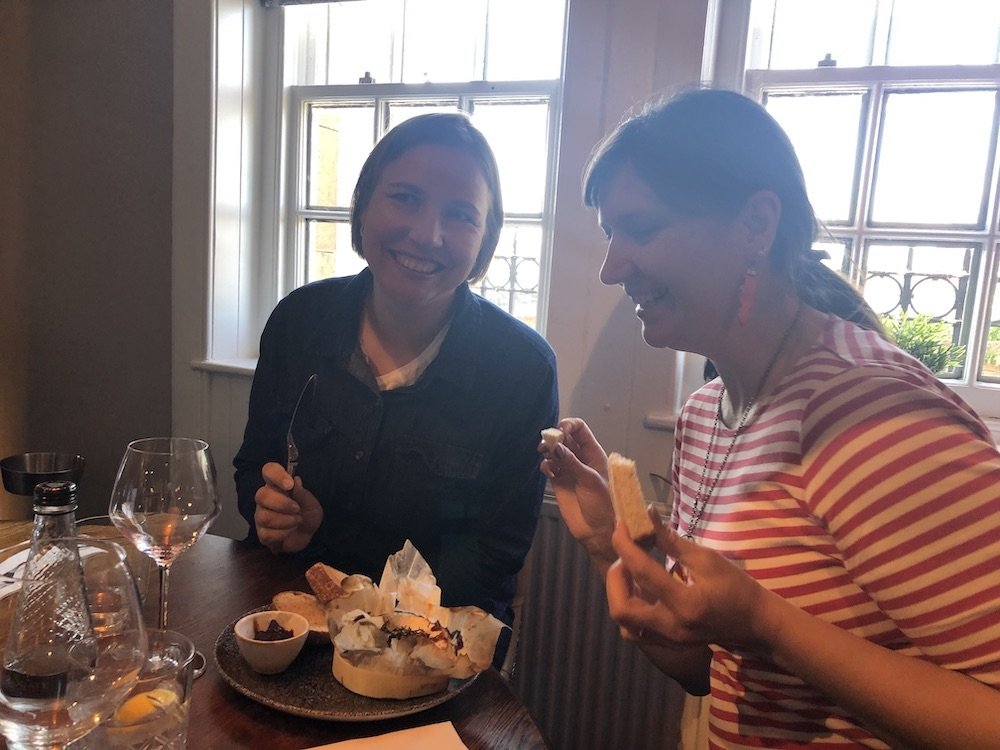



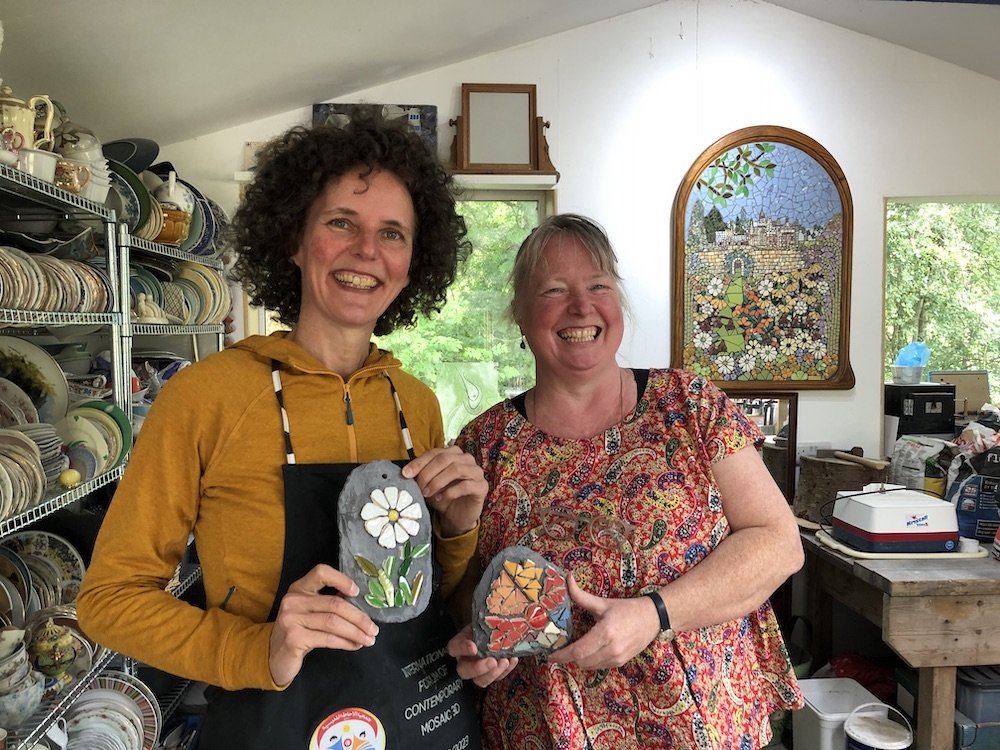
Photo credits: Blue Noun (2024). Used with permission from Ruth Pringle.
Transcript
00:00:00:01 - 00:00:24:15
Laura
TESOL Pop season ten, episode ten. Hello and welcome to TESOL Pop, the mini podcast for busy teachers. My name is Laura, and joining me today to talk about immersive English experiences is the founder of Blue Noun, Ruth Pringle. Now, in this episode, Ruth talks about what inspired her to set up Blue Noun, as well as the importance of immersive experiences that involve the outdoors and the community.
00:00:24:17 - 00:00:40:08
Laura
She also talks about the distinction between an English language user versus a learner. And make sure you stick around to the end of this episode because Ruth has a special invitation just for you. Now let's join the conversation where I ask Ruth to tell us more about Blue Noun.
00:00:40:14 - 00:01:04:08
Ruth
Blue Noun is in Perthshire, in Scotland. And the thing to know about Perthshire is it's beautiful as it's called ‘Big Tree County’ it is full of wide rivers and beautiful landscape. It’s quite under visited in terms of a place to come to Scotland. So we have just amazing landscape, but not too many tourists. Within it we have, language schools.
00:01:04:08 - 00:01:28:02
Ruth
So that's in a town called Crieff, which is, a wee Highland town. And it's a hub. It's not a traditional language school at all. It's a hub in the sense that there's a door open to the community and there's a door open to English language. Well, what most people call English, English language learners, but I like to call English language users.
00:01:28:04 - 00:01:40:10
Ruth
And they come here and they spend time at our hub meeting our community, and adventuring out, having exploring the wonderful landscape of Perthshire and Scotland, really.
00:01:40:12 - 00:01:52:00
Laura
And Scotland. Absolutely gorgeous for people that haven't travelled to Perthshire in Scotland what a beautiful place to host a hub. You made a really interesting distinction there between user and learner. Could you just tell me a bit more about that?
00:01:52:02 - 00:02:21:24
Ruth
Yeah, I think it's a trap. I think calling yourself a language learner just puts you in a position of always being about to do something wrong, or never being ready or never being perfect. And, I'm quite against that language. You can be trying to improve. But you're an English user, whatever your level is. I've met people who are over in Scotland, and they're here because they're taking part in a cycling event and they can barely order themselves a sandwich.
00:02:21:24 - 00:02:43:06
Ruth
But they're using English in Scotland and nobody's judging them. They are here to do something they love. I think that's that's the right way to use a second language. And of course, you can grow it and of course you can get help growing it. But I see a lot of people who are stuck feeling not good enough. And that's holding them back.
00:02:43:08 - 00:02:56:22
Laura
I think I can definitely relate to that myself as a language learner myself, feeling like I'm not good enough because I'm not passing this certain level of the test, but then it's not affecting my day to day communication and the relationships I'm building in using the language.
00:02:56:24 - 00:03:34:08
Ruth
Well, there's always more to know. Even even even for for people who grow up using English as a first language, there's always more to know. So if you're in the cycle of of never being good enough, or always having to reach for the next level, you're never ready. Whereas if you if you just kind of pack up your what I call wonky English, so imperfect English, then come over and use it and play with it, and have fun using it and playing this that you just you grow a sense of an identity as an English language user, which is is such a powerful thing to then take back into your, your search for
00:03:34:11 - 00:03:35:16
Ruth
English language progress.
00:03:35:16 - 00:03:47:12
Laura
What you describing here? Like Blue Noun and the values that are coming through it sounds like such a playful and relaxed and supportive space. I wonder what inspired you to start this journey in starting your business and establishing Blue Noun?
00:03:47:13 - 00:04:14:04
Ruth
Firstly I used to work for, corporate language school. So how they helped people and they really did get language results in a way that suited the school, but not all was adapted to the individual learner's needs. And how the person felt about their English was ignored, and the whole process of slightly getting them better and and pushing them from the next kind of technical level of English to the next one.
00:04:14:06 - 00:04:37:09
Ruth
And then during that time, I had a lot of people asking me, is there is there a way to come and spend a week in Scotland or a week in the UK and improve your your language skills? But at that time, what was on offer was like sitting in a classroom. And that doesn't really suit a professional person who is who, that part of their life is behind them.
00:04:37:09 - 00:05:04:21
Ruth
Really. I feel it's a bit disempowering to do that. And it's not travel either. What's the point of getting on the plane to then sit in a city in England? To be told how to speak English really makes a not much sense to me at all. So my idea was birthed then. And it's just this kind of idea of slightly being all things to all people in the sense that I'm here.
00:05:04:21 - 00:05:27:00
Ruth
We are here. The different language needs of each person and or their interests or passions or professional languages is different. So we're in a position to kind of turn into what that person needs in order to be able to relax into English and and enjoy it. And we have we have a bag of tools that we use to do that.
00:05:27:06 - 00:05:41:11
Ruth
We have lots of ways of engaging people into the language. But it's not a prescriptive set way that you have to like our program. We find out about you, and then we build a holiday around you.
00:05:41:13 - 00:06:05:14
Laura
That's amazing. And I've seen some of those photos that you've shared with us that are actually on the website for people listening. If you want to go to the TESOL Pop website Ruth’s shared photos of what those days can look like. So I saw photos of like visiting a local pottery, for example. Could you give us a snapshot into what you may be doing with, an English user who comes to visit Blue Noun English hub?
00:06:05:16 - 00:06:39:07
Ruth
Yeah, absolutely. The the pottery is a great example because I have, quite collection of artist studios that I like to visit. And the reason there's, there's a number of reasons why we do art studios, but like, firstly, you get to walk into a professional space. Now, no matter, what your, your background is, you, you can have a completely different profession, but walking into an artist studio, you're meeting somebody in their workplace, surrounded by their tools, talking about how this started, what they're working on.
00:06:39:09 - 00:07:00:01
Ruth
It's there's a lot of language that gets covered in that setting that you will also need in your workplace. But what a lovely way to collect it by talking to an artist about their work. And then there's a second thing in that. Artists are like, they're not not always born speakers. You're kind of entering quite a personal space.
00:07:00:07 - 00:07:21:09
Ruth
They can be a little bit vulnerable with their work, and you could be a little bit vulnerable with your English. So there's actually quite a nice equality of this meeting of two different groups of people. So I do tend to share artist studios a lot. And then lastly, they're just they are great fun for exploring. They're very visual, very tactile.
00:07:21:11 - 00:07:26:08
Ruth
Every object in an artist story has a story. It's a good place to play as well.
00:07:26:10 - 00:07:35:08
Laura
And, are the uses that come along with you, are they engaging in the activities as well while they're engaging in conversations with the artist? Is that is that what it looks like?
00:07:35:10 - 00:07:56:13
Ruth
It can. It can do, like from time to time. So we will we'll visit different artist studios when we're out and about exploring. Because another thing about the studios is they tend to be in quite lovely parts of of Perthshire. So if we go for a walk and I know that there's an artist's studio locally, then we'll we'll pop in and visit and say hi, and have a chat.
00:07:56:15 - 00:08:18:16
Ruth
So you can think about your holidays, just little adventures with different conversation points laced through it. But I do have artists that we do workshops with as well, so that would be an a morning or a full day event. One that we did recently was, a mosaic workshop. So we basically we got a little demo on how to use all the tools.
00:08:18:16 - 00:08:39:24
Ruth
And then everybody, everybody went home with a mosaic that they can put in their house or their garden. It's just such a good, tangible souvenir. And then if we're going to use a metaphor, which I like to do, like you've got all these little broken bits and you're making something beautiful out of it, it's nothing's perfect. So we got rid of that word perfect pretty quick.
00:08:39:24 - 00:08:46:18
Ruth
And we just enjoy what we've got and start loving it and respecting it.
00:08:46:20 - 00:09:09:18
Laura
I'd love to hear more about the transformation. You've seen people go on after they've done a week with you, for example. And stayed with you and gone on these journeys of having these language interactions, visiting studios, engaging in different activities, having moments, those souvenirs almost to take away as well. What what's the transformation that you're seeing?
00:09:09:19 - 00:09:32:20
Ruth
I think that it's the difference between and we talked about it a little bit about being an English learner, an English user. But if I give you lots of real places and real conversations and real settings to use your English, you can start believing in your English. I think it's quite easy to feel like you're pretending to be something or someone in a classroom.
00:09:32:22 - 00:09:57:16
Ruth
And then after a week, like I like to describe it as people are arriving with their English slightly separate from them, and then when they're leaving their English is in their heart. It's as part of who they are. And, you know, language is like that. We don't just learn words. We learn part of the culture and and all the flavours and the tastes and the sights and the smells and the people who you've met, they they they inspire you.
00:09:57:16 - 00:10:24:15
Ruth
They fill your heart. It's all wrapped up in the words, in the language that you're learning here. And you're, you're you're discovering here. And it's all kind of interwoven and interconnected and it just turns into a really real thing that you can believe in, have confidence in, and, and be proud of as well. Like regardless of the level, even if there's still a few errors as you change how you do that.
00:10:24:15 - 00:10:32:05
Ruth
I think that's that's a really important transformation for everyone just to to love their English, whatever level they have.
00:10:32:07 - 00:10:46:22
Laura
That's a wonderful thing to kind of empower people with that kind of, yeah, change of mindset. It's it's a shift, isn't it? And that can open up so many more doors and, interactions as they go away and take that to where they're using it.
00:10:46:24 - 00:11:30:19
Ruth
Yeah. I mean, like, even if you're, you're learning English for making presentations at work and that's, that's something a lot of people have to do. And of course, it's stressful. It's stressful in your first language. So it's it's going to be worse in the second language, yet it doesn't have to be because when, when you have all these positive experiences of English, if you've had a whole week of smiling and laughing and enjoying your English and playing with it and testing it, that's something that still within you, even even a year later when you're doing your presentation, is it's just kind of melting the stress out of the situation and and giving.
00:11:30:21 - 00:11:35:00
Ruth
Yeah. It's like the pressure off, taking the pressure off, speaking English.
00:11:35:02 - 00:11:41:10
Laura
You know, I think we could all do with a slice of that in our lives, can't we? Can I sign up?
00:11:41:12 - 00:11:57:24
Laura
I that's one thing I really like to close this episode. I normally we close are saying, oh, how can teachers apply this to their classrooms? But I'd like to do something different because I think this is for teachers who are passionate learners and teachers of the English language. Can they come too?
00:11:58:01 - 00:12:18:01
Ruth
I have, I would love them to come. Do they actually have a lot of people when I post about my holidays online, kind of saying I'm an English teacher. Can I come in? Yes, of course, of course you can come. I love it. When I talked about the hub before and the community and other community, I do help as independent English language teachers.
00:12:18:03 - 00:12:41:12
Ruth
I do have some resources on the website to help you with like class prep, like sample lessons, things, videos that you can put into your class, and a network. Like I'm all for just having a network of independent English language teachers. And as part of that, yes, I'd love to invite you. And I'd like to take this opportunity to invite you with a discount as well.
00:12:41:14 - 00:12:47:03
Ruth
If you mention this episode, you can have a 20% discount on any of our holidays.
00:12:47:05 - 00:13:01:20
Laura
Wow. That's fantastic. Thank you Ruth. Thank you for that invitation and for sharing all about Blue Noun today it's been lovely hearing about your business journey and the work you're doing and how you're helping people on their their learning journeys. It's just really inspiring. So thank you.
00:13:01:20 - 00:13:04:24
Ruth
For your time. My pleasure. Thank you so much.
00:13:05:01 - 00:13:24:13
Laura
So to learn more about Ruth and indeed take up that offer of the invitation to go to Blue Noun English hub, all those links you can find in the show notes. You can also go to the website to see those lovely photos of all the adventures that Ruth was describing. So there is pottery classes and days out you can go to TESOL Pop to see more. Now
00:13:24:13 - 00:13:43:12
Laura
if you enjoyed this episode, you can support us by leaving a rating and review wherever you listen to the podcast so more people can discover us. Or by sharing today's episode with your teaching community to continue the conversation, or by even buying us a coffee by going to ko-fi.com/tesolpop
You might also like
Good to know
This blog space and its associated multimedia content contain affiliate links. To learn more about how affiliate links work, please read our disclaimer here.



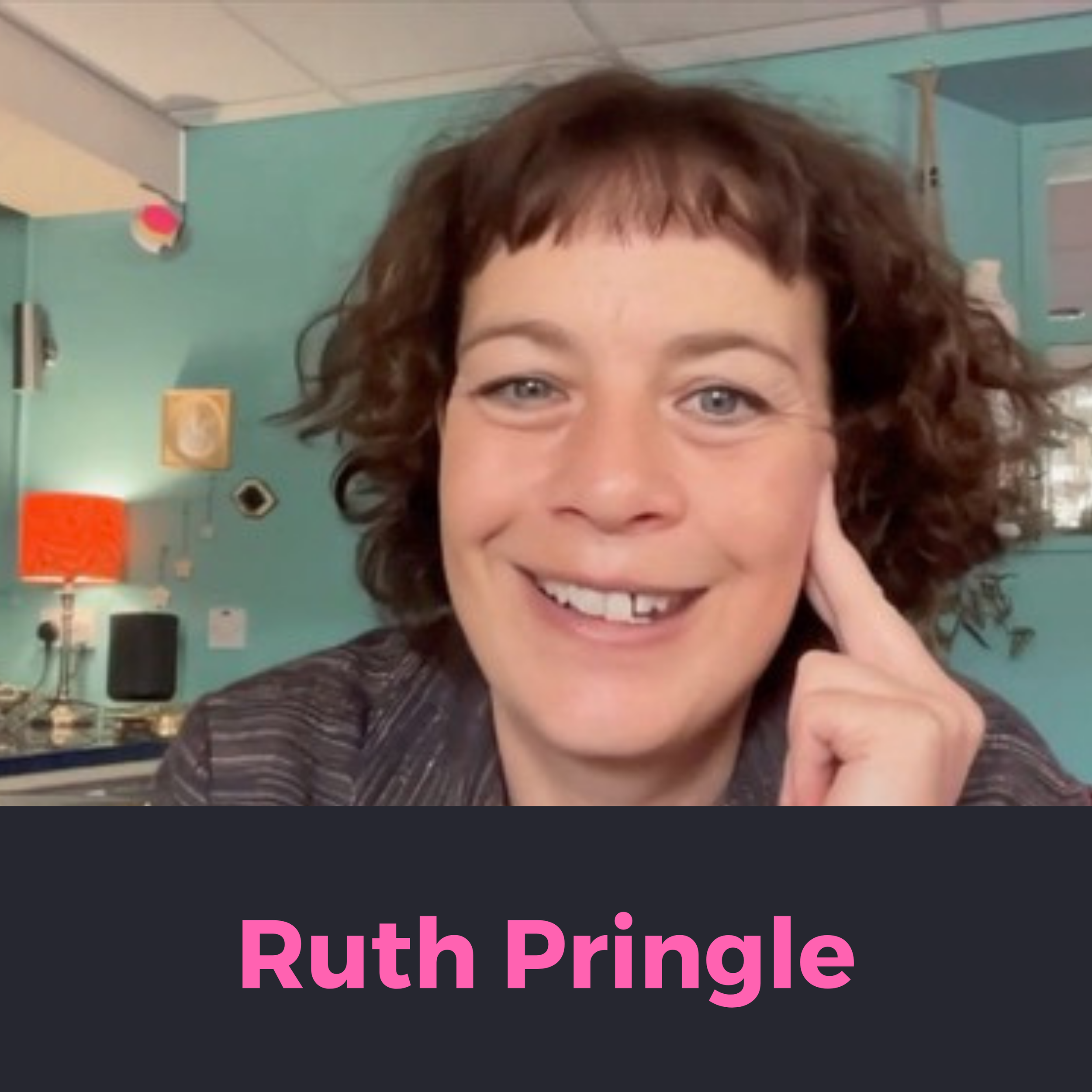
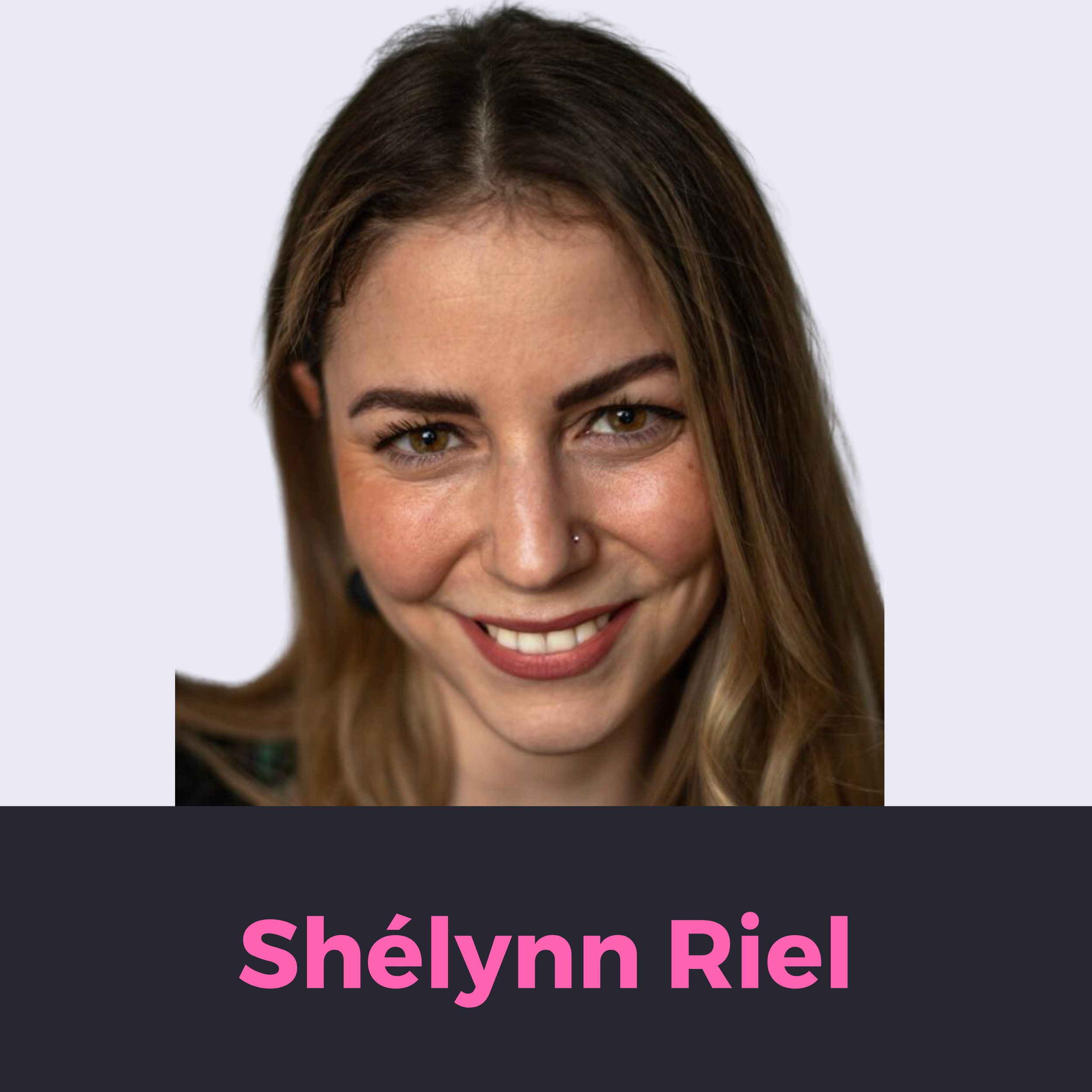
Kate Bodrova, co-founder and CEO of Amazy, explores how technology is positively impacting teaching. Kate shares insights on how Amazy helps educators create and share interactive, media-rich resources while streamlining workflows. In this episode, Laura and Kate also discuss current trends, including AI’s role in education, the rise of the teacherpreneur, and how educators can leverage technology to enhance—rather than replace—human connection in the classroom.